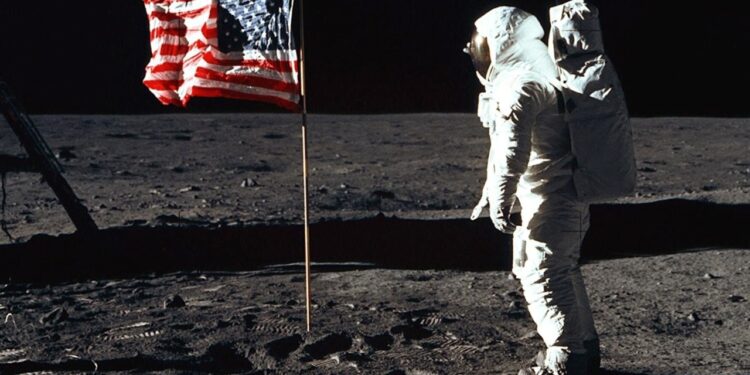In 1969, humanity achieved an extraordinary feat that would forever be etched in the annals of history—the successful landing of Apollo 11 on the moon. Led by Commander Neil Armstrong, Lunar Module Pilot Edwin “Buzz” Aldrin, and Command Module Pilot Michael Collins, this audacious mission marked a significant milestone in space exploration, technology, and the human spirit.
On July 16, 1969, Apollo 11 blasted off from Kennedy Space Center in Florida atop the mighty Saturn V rocket. The eyes of the world were fixed on the televised launch as the three astronauts embarked on their journey to the lunar surface. Four days later, after traveling approximately 240,000 miles, the Lunar Module Eagle separated from the Command Module Columbia.
On July 20, the world held its breath as the Eagle descended towards the moon’s surface. Armstrong and Aldrin faced a tense and nerve-wracking final approach, with alarms and limited fuel, before Armstrong famously radioed, “Houston, Tranquility Base here. The Eagle has landed.” The mission had succeeded beyond imagination.
Several hours later, on that fateful day, Neil Armstrong descended the lunar module’s ladder, becoming the first human to step foot on the moon. As his boot touched the surface, he immortalized his words: “That’s one small step for [a] man, one giant leap for mankind.” Buzz Aldrin joined him shortly after, and together they planted the American flag, conducted scientific experiments, and collected lunar samples.
The world watched in awe and wonder as Armstrong and Aldrin conducted their lunar activities, making history while Collins orbited the moon in the Columbia. The mission’s success not only represented the culmination of years of research and efforts by scientists, engineers, and astronauts, but it also symbolized humanity’s indomitable spirit and determination to reach beyond the confines of Earth.
Apollo 11’s triumphant return on July 24th was met with jubilation and relief. The crew’s safe return heralded the fulfillment of President John F. Kennedy’s 1961 pledge to put a man on the moon before the end of the decade. It also demonstrated the power of international collaboration and peaceful exploration, transcending political and ideological boundaries.
The moon landing of 1969 laid the foundation for subsequent space missions, including six more successful Apollo moon landings. Beyond the scientific advancements, it inspired generations of scientists, engineers, and dreamers, sparking innovation in various fields and shaping the future of space exploration.
More than half a century later, the Apollo 11 moon landing remains an enduring testament to humanity’s potential when united by a common goal. It stands as a reminder that the boundaries of exploration are limited only by our imagination and determination to reach for the stars.
newshub




Recent Comments